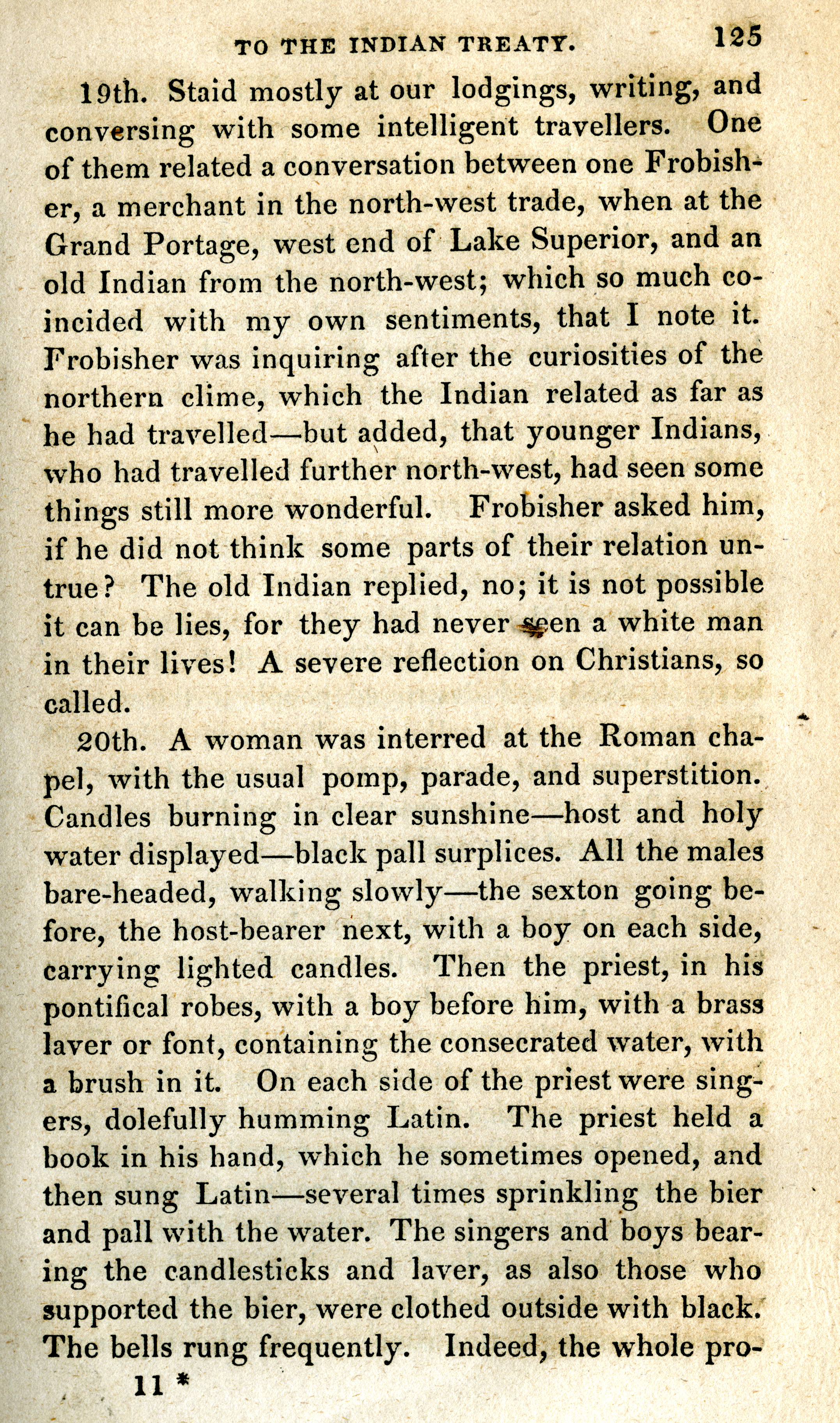Staid mostly at our lodgings, writing,
and
conversing with some intelligent travellers. One
of them related a
conversation between one Frobish-
er, a
merchant in the north-west trade, when at the
Grand
Portage, west end of Lake
Superior, and an
old Indian from the north-west; which so
much co-
incided with my own sentiments, that I note it.
Frobisher was inquiring after the curiosities of
the
northern clime, which the Indian related as far as
he had travelled
— but added, that younger Indians,
who had travelled further north-west, had
seen some
things still more wonderful. Frobisher asked him,
if he did not think some parts of their
relation un-
true? The old Indian replied, no; it is not possible
it can
be lies, for they had never seen a white man
in their lives! A severe
reflection on Christians, so
called.
A woman was interred at the Roman
cha-
pel, with the usual pomp, parade, and superstition.
Candles burning
in clear sunshine — host and holy
water displayed — black pall surplices.
All the males
bare-headed, walking slowly — the sexton going be-
fore,
the host-bearer next, with a boy on each side,
carrying lighted candles.
Then the priest, in his
pontifical robes, with a boy before him, with a
brass
laver or font, containing the consecrated water, with
a brush in
it. On each side of the priest were sing-
ers, dolefully humming Latin. The
priest held a
book in his hand, which he sometimes opened, and
then sung
Latin — several times sprinkling the bier
and pall with the water. The
singers and boys bear-
ing the candlesticks and laver, as also those
who
supported the bier, were clothed outside with black.
The bells rung
frequently. Indeed, the whole pro-

